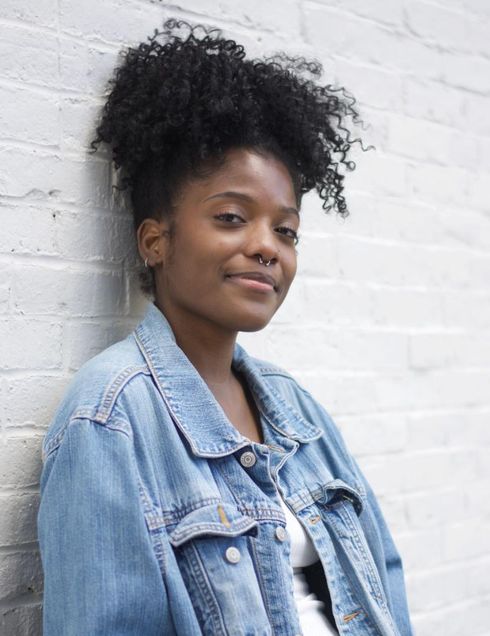Championing for Change: Women Leading Diversity, Equity & Inclusion in Tech at BU

For years, the call for women to join the tech field has largely remained just that: a call. Without the resources to implement a true sense of equality, the number of women claiming their spot within a field that has the highest projected job growth has continued to stall.
“As a woman who is pursuing a career in tech, I am prepared to be the only woman — probably the only Black woman in the room,” Mya Turner (CAS’23) said. “Barriers to getting into tech are plentiful: lack of diversity, cumbersome interview processes, bro culture, and imposter syndrome.”
These barriers don’t just develop in college. Although girls outperform boys in science and math test scores in elementary, high school, and at a university level, studies have shown that they largely end up turning to humanities. “It happened to me,” Turner said, who almost switched out of her computer engineering major.
“Sometimes we fail and it’s that bounce back that builds character. Unfortunately, minorities and women are not always taught to believe that mistakes are okay,” Turner said. “And before we learn that it is normal to struggle, a female adolescent will decide to pursue another career.”
Among the women who stick with STEM majors, women of color account for only 14 percent of bachelor degree recipients. Post-graduation, the percentage of BIPOC women who hold jobs in the STEM workforce drops to under 5 percent.

In exploring how to improve these numbers, Turner is joined by Ignite Student Council Diversity, Equity, and Inclusion (DEI) Lead, Junia Janvier (CAS’23) as co-teachers for a new course at Boston University, DS291: Exploring DEI in Tech.
The class serves as an introduction to equity-based thinking in tech, and how individuals can actually make a more inclusive tech world.
“Adding sexism to the mix deters a lot of young women from pursuing [technology],” Janvier said. “I remember how I wanted to be on the robotics team at my high school, and it was me and another woman of color in a sea of men.”
Janvier didn’t last long on the team because of the negative experience she had, “but I wish I had stuck it through,” she said. To avoid repeat negative experiences among women, Janvier worked with Spark! to create the new course.
Implementing the call for diversity is also supported by efforts from DEI Intern and Project Manager at Spark!, Shateva Long (CAS’23). Long spearheaded the development of the DEI Tech Climate Survey with the BU DEI Tech Collective committee, which measures experiences of students in STEM majors to improve the experiences of students across demographics.
“We’ve surpassed our goal of 500 respondents and I can’t wait to see the change that comes from this survey,” Long said.
According to Long, real change comes from introducing children to technology when they’re young. “I truly believe that technological areas of study such as computer science should be offered at all K-12 schools, just like English or mathematics,” Long said. “For many children who look like me, fields like computer science were never an option for them because they were never given the chance to even consider it.”

As for what lies ahead in their future, all three women envision building upon the tech roots. “I really want to have an urban farm within the next 10 years,” Long said. “It’ll be environmentally friendly and very high tech.”
Janvier sees herself in more of a consulting role. “I would like to work in a solely DEI tech role where I can support companies in developing their foundations for bringing in and retaining diverse talent,” she said.
Turner’s vision is directly in line with women supporting women in tech. “I cannot wait for the day I am able to code like Penelope Garcia in ‘Criminal Minds’,” she said.